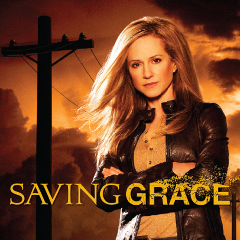Also from Lilit Marcus, this interesting article about three new novels that cast a new light on Britain’s hidden epidemic. Stephanie Merritt, who suffers from depression herself, writes a memoir for Random House (and this article) because she wants greater understanding of a subject that is still largely taboo in her country. To get to the article click here. Some excerpts:
On a February day in 2003, I walked into my GP’s surgery and announced that if she didn’t help me I would probably be dead by the end of the week. I wasn’t sure, even then, what exactly I needed help for; only that I had reached a place of such bleakness and despair that I couldn’t go on. I had lost any sense that my life was worth living, or that I would ever feel differently; simply being conscious, getting through the day, had become unbearable. I couldn’t cope with the smallest decisions; often I didn’t eat because the effort of deciding what I wanted and then preparing it seemed as daunting as running a marathon. I felt I had long ago used up all my inner resources; for weeks I had thought of nothing but how I could put an end to this empty pretence of a life.
I felt very stupid and ashamed in going to my doctor; I wasn’t sure, even then, that my experience legitimately counted as an ‘illness’. I thought she might tell me to get a grip and stop wasting her time; plenty of people had it much worse. I felt that I should have been able to pull myself out of it and piled guilt and blame on myself because I could not. Five years on, I can now see clearly that I was suffering from severe postnatal depression combined with chronic stress; having consulted psychiatrists and psychologists, I also understand that it formed part of a continuous pattern of extreme mood swings, including several previous episodes of depression, that had been part of my life since my late teens.
But at the time ‘depression’ was a distant concept to me; I knew it existed, because I had read about Sylvia Plath and Virginia Woolf, but I thought it was a condition that belonged to dead artists. I didn’t equate it with my episodes of despair, which I suspected were due to some character flaw or weakness on my part, a failure to ride over the potholes of life with the necessary British pluck and fortitude. I certainly didn’t talk to anyone about it, because I thought it would sound like a terrible admission of failure; instead I worked hard to hide it from everyone who knew me. People thought of me as strong and competent and I didn’t want to disappoint them.
We are not comfortable talking about depression in our culture, which places so much emphasis on success and on the belief that achievement equals happiness. Collectively we have not made it easy to admit to depression, and as a result there are people who die each year by their own hand when they might have been helped, had they only known how to ask. According to the most recent study by the Office of National Statistics, one in six people in the UK suffers from ‘significant’ mental distress at any one time, of which the most common condition by far is mixed depression and anxiety. The Depression Report, a study published in 2006 by the Mental Health Policy Group at the London School of Economics, estimated that only a quarter of those who experience depression go on to receive treatment.
But it seems that this culture is gradually beginning to change. Over the past couple of years, a new openness has begun to replace the stigma that previously surrounded mental illness. In 2007, five of the leading mental health charities incorporated the findings of the Depression Report into the nationwide We Need To Talk campaign, successfully lobbying for greater investment in evidence-based talking therapies, such as cognitive behavioural therapy, for NHS patients with depression. In 2006, Stephen Fry did for manic depression what Kylie has done for breast cancer with his insightful and frank documentary series, The Secret Life of the Manic Depressive, giving many people greater confidence to talk about their illness.
When I was asked last year by Random House to write a book about my experience of depression, I had no idea that two other books on the same theme, also by women journalists, would be published at the same time, but it is not surprising. Depression is on the rise, and it seems women are especially vulnerable. Thirteen years after the publication of Elizabeth Wurtzel’s Prozac Nation, the original bestselling account of depression by a young woman, 2008 sees a resurgence of the female depression memoir.

